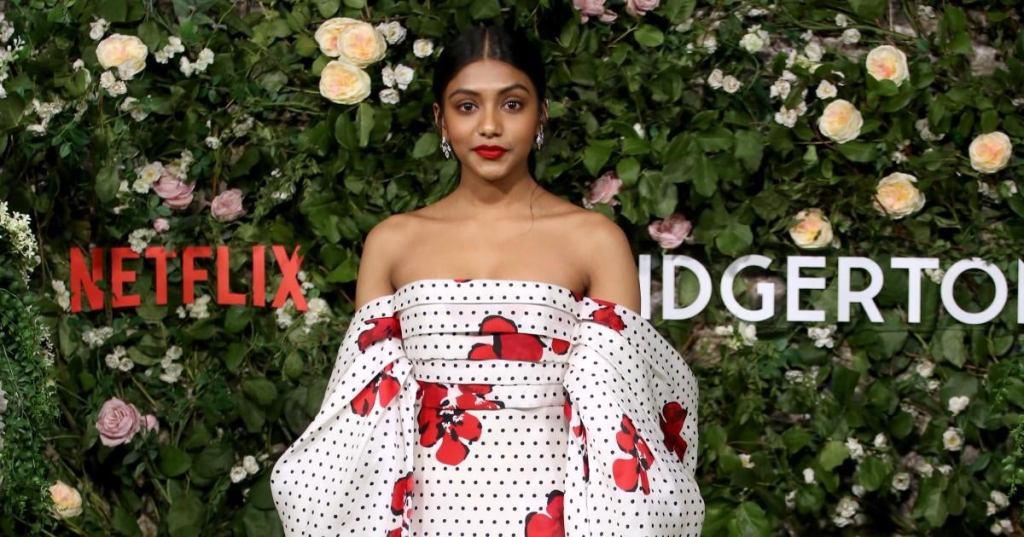Charithra Chandran has received considerable praise for her portrayal of Edwina Sharma in the second season of Netflix’s hit series Bridgerton, which broke Netflix’s record for the most viewed English-language TV series in a single week following its March 25 premiere. Season 2 follows Anthony Bridgerton as he courts Chandran’s character, only to fall for her older sister Kate (Simone Ashley).
In a new interview with Teen Vogue, Chandran, 25, talked about the importance of South Asian representation in the media, particularly for darker-skinned Tamil actresses such as she and costar Ashley. The actor touched on the prevalence of colorism in Indian culture and how she internalized the constant remarks about her skin color growing up. “For me, colorism in some ways is more painful because it feels like a betrayal of your own,” Chandran said. “If someone’s racist to you, you have your community to lean back on.”
Videos by PopCulture.com
Several studies have linked colorism in India to both the country’s caste system and European colonial rule. Skin-lightening products also make up a multi-billion dollar industry in India. Many Bollywood actors, who are predominately lighter-skinned, also endorse skin-lightening creams. Chandran noted that the products “always hide it under like, ‘it makes you glow,’ ‘brightens’ — it’s all synonyms for lighter. So I never ever was able to forget that I was darker-skinned.” She said she once tried to wash the color off her hands when she was younger.
Chandran recalled the pain of growing up with constant reminders of her cultural inferiority from her own family and friends.”… If someone’s attacking you from inside your own family, or trying to oppress you, or create a hierarchy within your own family, that is in some ways, so much harder to deal with.”
She said that “No one let me forget that I was dark-skinned growing up. My grandma was very light-skinned. Whenever we’d go around in India, they’d always say, ‘Oh, you’d be pretty if you had your grandmother’s coloring.’ ‘Shame about the color of her skin.’ ‘She’s pretty for being dark-skinned.’ All of these comments, all the time.” She mentioned that while her grandparents didn’t even allow her to play outside in the sun, she didn’t resent them for it, pointing out that “they were trying to make my life easier.”
Chandran said that her personal experiences with colorism have made her mindful of the possible influence she may wield from her new platform. She admitted that it is sometimes difficult for her to break her former mindset but doesn’t want others to grow up feeling the same way.
“When the sun is shining, and I tan, my instinct is like, ‘oh f–, I tanned.’ I’m trying to unlearn it,” Chandran said. “It’s going to be a lifelong struggle. Or like when I’m editing a photo for Instagram, of course the temptations are there, because for most of my life I’ve been taught that that’s what is beautiful. It’s really, really traumatizing. I just desperately don’t want that for my cousins. I just pray, pray, pray that it’s not like that for them.”









